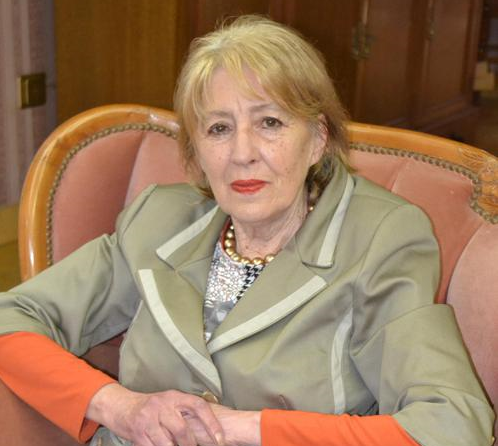It is with deep regret that family, friends and the local and provincial literary community bid farewell today to the remains of Azucena Gribaldo, from Rio Teceres.

The doctor and author died on Thursday morning at the age of 79. Since last Monday, she had been admitted to intensive care with bilateral pneumonia, which eventually led to her death. He has long battled a chronic illness that has become more complicated in recent days.
Gribaldo is one of Rio Tesero’s most distinguished writers, influential at the provincial and national levels and recognized by his colleagues.
He was born in the city of Oliva and spent his childhood in the countryside. In 1976, after completing his medical degree, he settled in Rio Tercero.
He joined the GECIL group (people concerned with literature) in the mid-eighties. Many of his works have been collected in municipal, provincial, and national anthologies, shared books, and literary magazines. He integrates juries for regional and national literary competitions.
She was a pioneer of writers on the Córdoba police. She is the author of the play “The Rebellion of the Parents”.
His work has been honored with provincial and national awards, including the first Interregional Poetry and Short Story Award from Alpha Editorial, the Luis de Tejeda Prize for Fiction in 1986, and an honorary award from the Argentine Writers Association . His novel “Talking About Our Crimes” and his novel “The Right to Die” won second prize in a competition organized by the Libro Foundation at the Buenos Aires Book Fair (1987).
Published five novels: Freaks and Other Stories, 1986; Talking About Our Crimes, 1986 and 2004;
The Right to Die, novel 1997; Travesías, 2014 with Elsa Mrad; Miraculous Sins, 2017; His last work from 2020 is State of Grace, One Day of the Year “.
Her friend and colleague Mario Trecek recalled that she, along with the also late Pola Furlani and Yolanda Gozálvez, were “A Literary Pillar of the Glorious Age of Letters in Rio Tesero”.
The author recalled to members of the GECIL group Gribaldo’s unique sense of humor, “which made us very happy”, and that humor is also reflected in his work.
“Azucena is the most relevant writer for Leo Tercero, at least as a narrator,” Trecek said.

